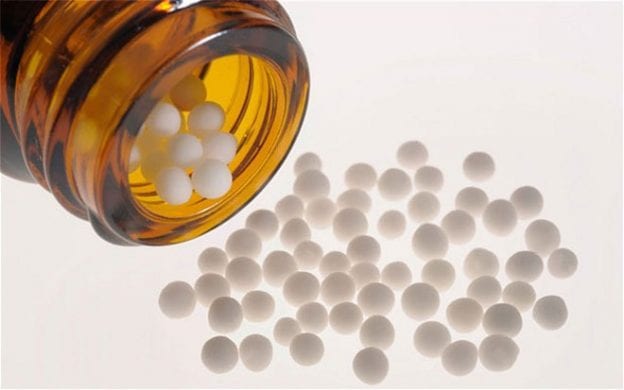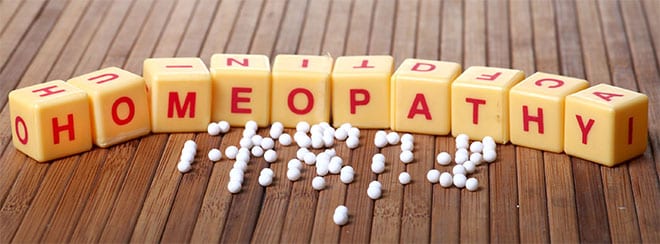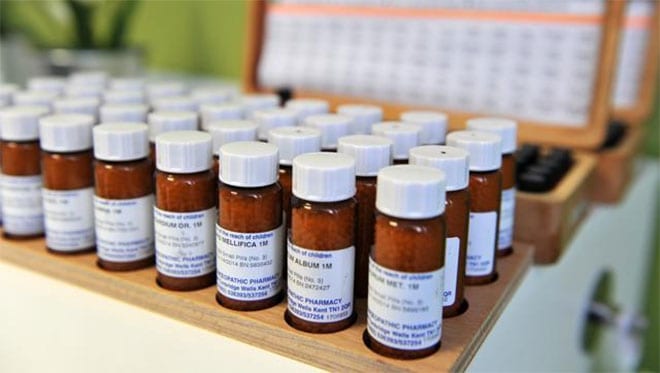
No scientific evidence that homeopathy works
The percentages of positive, negative and inconclusive results are similar in the studies on homeopathy and conventional medicine but reports on conventional medicine are much more numerous.

In the data up to 2014, there were 189 trials on homeopathy in peer-reviewed journals. Of these 189, 104 trials were placebo-controlled, suitable for detailed analysis. And of these 104, 41 percent, i.e.43 trials concluded that homeopathy was effective..
All this underlines the need for further studies in homeopathy. And this difference in studies is understandable if we take into account the small budget devoted to medical research complementary.
No positive trials to prove that homeopathy works
We will cite a number of trials, where no biased selection has been made, as we are not aware of any repetitions of these trials that have had negative results.
These are examples of high quality positive RCTs and meta-analyses / systematic reviews on different types of homeopathy:
- In 2003, a meta-analysis of 3 placebo-controlled trials by Jacob et al. demonstrated that homeopathic treatment reduced the duration of diarrhoea (p=0.008)
- Individual homeopathic treatment for ear infections (otitis media) in children
- For the allergic rhinitisthe homeopathic medicinal product Galphimia glauca
- Pollen 30c, isopathic medicinal product, for the hay fever or allergic rhinitis
- Oscillococcinum, a homeopathic medicinal product, for the treatment of influenza. The study showed that this drug is effective in treating flu, but not in preventing it.
- Vertigoheel , a homeopathic medicine for the vertigo
Scientists say homeopathy is impossible
Not all scientists say this. In an interview in the journal Science, Prof. Luc Montagnierwho won the Nobel Prize in 2008 for his role in the discovery of HIV, when asked: "Do you think there is any basis for homeopathy?", he replied: "What I can say now is that high dilutions are correct. A very high dilution of something is nothing. There are structures of water that mimic the original molecules.
Homeopathic medicines are so diluted that 'nothing is in them'.
The mechanism of action of homeopathic medicines is under investigation and is probably based more on physics than chemistry. What we do know is that many laboratory tests have shown that the homeopathic medicines ultradiluids have biological effects that would not be visible if they were simply water or sugar pellets, for example.

In the manufacturing process of homeopathic medicines vigorous shaking or agitation of the diluted original substance is very important. If you simply dilute the substance time after time, you are left, of course, with an inactive sample. Dilutions that have undergone succussion can cause biological effects.
Homeopathy is just a placebo
It is sometimes claimed that homeopathic medicines are just sugar pills that have no active ingredients and only have a placebo effect, i.e. the patient believes that the pills will cure him/her and this belief alone leads to a healing process.
However, there is no scientific evidence for this explanation, since:
- There are high quality placebo-controlled trials specifically designed to distinguish between placebo effect and real clinical effect.
- Homeopathic medicines have been shown to have an effect in experiments carried out in the laboratory
- Homeopathy can work in animals. For example, homeopathy can prevent E.coli diarrhoea in piglets.
Homeopathy is a waste of money
In a country like the United KingdomThe British Complementary Medicines Research Council and homeopathic hospitals in London and Glasgow have been in existence since 1982, annual NHS drug spending amounts to £11 billion, while spending on homeopathic prescriptions is £152,000.
Tested against true medicine fails
Studies have been done in many diseases that show that homeopathy can have the same or better effects than conventional medicine
For example, in the
- Depression: A individualised homeopathic treatment in menopausal women with depression moderate-to-severe treatment achieved a more marked clinical improvement than fluoxetine, also known as Prozac.
- Ear infection in children: A study in India with 81 children with acute otitis media concluded that conventional treatment with analgesics and antibiotics, among others, was as effective as individualised homeopathic treatment.
- Upper respiratory tract infections. An international multicentre study proved that homeopathic treatment in primary care was non-inferior to conventional treatment for acute upper respiratory tract and ear problems.
Homeopathic research is of poor quality
The only study conducted showed that homeopathic trials were of higher quality than the conventional trials with which they were compared.
We compared 110 homeopathic trials and 110 comparable trials of conventional medicine. And it was found that 21 homeopathic and 9 conventional medicine trials were of superior quality. In other words, the quality of research in both areas needs to be improved.
Best homeopathy trials show it doesn't work
Six comprehensive systematic studies have been done on homeopathy with the result that five studies were positive and only one negative.
The Lancet study or the 2005 Shang article cited as negative and claiming that homeopathy was only a placebo effect has been contradicted by 5 other articles, has been criticised as containing serious flaws and has been replaced by the 2014 article by Mathie et al.
The idea that like cures like is nonsense.
Based on the central principle that like cures like, i.e. a substance in large doses may cause symptoms but can be used in tiny doses to treat similar symptoms, homeopathy has been criticised and yet this idea is not new to science and in fact this concept, called hormesis, has long been discussed.
There are also examples in conventional medicine that like cures like. For example, digitalis, in high doses causes arrhythmias, but is used in low doses to treat arrhythmias. And low doses of allergens such as pollen are used to desensitise allergic patients.
In homeopathy, however, there is an advantage in that the doses used are so small that toxic side effects are avoided.
Homeopathy should not be used because it is not known how it works.
The same was true for a conventional medicine such as aspirin. Its mechanism of action was not known and yet it had been in use for more than 70 years before it was discovered in 1971.
Conventional medicine is proven, homeopathy is not.
The prestigious British Medical Journal found that 46 per cent of some 2,500 treatments commonly used by the UK health system are of unknown effectiveness. and only 13 percent proved to be beneficial
Homeopathy is not a science
Homeopathy cannot be regarded, as its critics do, as a pseudo-science, since it scientists from leading universities, research institutions and hospitals all over the world conduct research on homeopathy using the same research techniques as those used for conventional medical treatments.
In any case, research in homeopathy is very new and if there are fewer articles published, it is not surprising considering the funding differentiation with conventional medicine.

